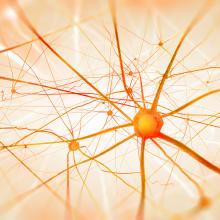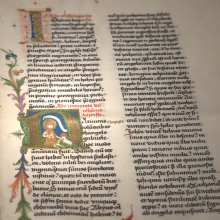Princesses' Libraries and Knowledge Practices in 18th-Century Germany
Reconstruction, Function, and Significance

Project Management: Dr Joëlle Weis (Universität Trier - Trier Center for Digital Humanities (TCDH)) · Prof. Dr. Peter Burschel (Herzog August Bibliothek Wolfenbüttel)
Sponsors: Deutsche Forschungsgemeinschaft (DFG)
Running time: -
Contact person (TCDH): Dr Joëlle Weis
References:
„Lesen Frauen anders? Forschende vergleichen die Bibliotheken von Fürstinnen im 18. Jahrhundert”, Dr. Joëlle Weis im Interview mit SWR Kultur, 7.8.2024, www.swr.de/swrkultur/literatur/lesen-frauen-anders-neues-projekt-erforscht-fuerstinnen-bibliotheken-des-18-jahrhundert-100.html.
Research Area: Digital Literary and Cultural Studies
Keywords: Fürstinnenbibliotheken, Buch- und Bibliotheksgeschichte, Wikibase, Linked Open Data, 18th century
The aim of this project is to investigate the knowledge practices and organization of knowledge by princely women of the 18th century through their libraries.
In recent years, libraries of princesses have increasingly attracted the attention of researchers, but a systematic examination of the collections, which are scattered throughout the German-speaking area, is still lacking. This project aims to address this gap by developing a digital platform to comprehensively reconstruct the book collections of princesses and enable a qualitative analysis of their book-related knowledge practices. The basis of the investigation comprises 99 libraries that have been identified in recent years. These libraries are documented in historical library and auction catalogs or other sources such as letters and diaries. In many cases, the original books can still be found in libraries today. A famous example is the Anna Amalia Library in Weimar, which houses the books of the eponymous princess. Through these volumes, reading traces such as underlining and notes can be discovered, allowing conclusions to be drawn about the reading behavior of the princesses.
To obtain comparable and meaningful data on the book ownership of princely women, the platform will link bibliographic information of the examined books with copy-specific information, such as provenance marks or reading traces, and biographical data into a knowledge graph. The systematic reconstruction of the libraries of princely women will for the first time enable quantifiable and comparative statements about their book ownership and book practices.
Bibliographic information of the examined books will be supplemented with copy-specific information (e.g., provenance marks or reading traces) and biographical data of the collectors. This approach will allow the exploration of knowledge and communication networks of princely women beyond individual protagonists for the first time. Based on the compiled data, six thematic monographs will be produced during the project's duration. This large-scale project will structure and publish the comprehensive data from 99 private libraries, making them digitally available for free use by researchers. Additionally, the data pool of the digital research platform can be expanded by external data providers.
Image Information: Idealdarstellung der Bibelsammlung von Elisabeth Sophie Marie von Braunschweig-Lüneburg, Johann Georg Schmidt, Brunswick, 1752 http://www.luthermania.de/buch/show/1184#page/6/mode/2up.
Team TCDH
Dr Joëlle Weis
E-mail: weis uni-trier [dot] de
uni-trier [dot] de
Phone: +49 651 201-3017
Julia Fischer
E-mail: hennemannj uni-trier [dot] de
uni-trier [dot] de
Phone: +49 651 201-3849
Rebecca Robinson
E-mail: s2rerobi uni-trier [dot] de
uni-trier [dot] de
Phone: +49 651 201-3365
Svenja Wagner
E-mail: wagnersv uni-trier [dot] de
uni-trier [dot] de
Phone: +49 651 201-3384








